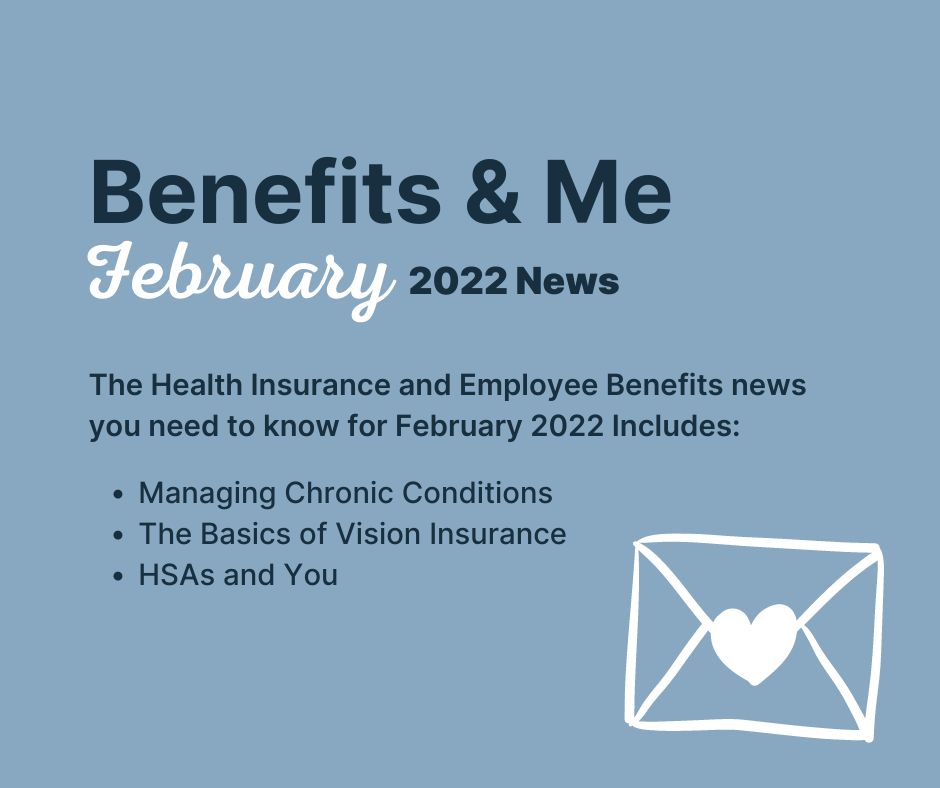Benefits & Me – February 2022

Managing Chronic Conditions
According to the Centers for Disease Control and Prevention, 6 in 10 adults have a chronic disease – and 4 in 10 have two or more. Major chronic diseases in America include heart disease, cancer and diabetes. If you’re coping with a chronic condition, you can take charge and manage it with these strategies:
- Study your chronic disease – The more you know about your condition, the better you’ll be able to understand and make treatment decisions. Lean on trusted and science-backed sources.
- Build your team – Seek out experts to provide guidance and support on certain aspects of your health. Your primary care physician can help piece everything together from specialists and nurses.
- Keep up with your medication – If you’re having trouble managing your medications during the pandemic, consider pharmacies with a drive-thru option or sign up for a mail-order pharmacy.
- Commit to healthy lifestyle habits – Many chronic diseases are caused by tobacco and alcohol use, poor nutrition and physical inactivity.
- Control your stress – Fear and anxiety are natural, especially after a diagnosis. However, stress can take a toll on your emotional and physical health, so managing your stress in healthy ways is crucial.
In a time when health care costs are rising at a rapid rate, it’s crucial that you do your part to keep chronic conditions at bay or effectively mange them.
The Basics of Vision Insurance
Vision coverage, a common voluntary benefit, is similar to regular medical insurance. Vision coverage is available in two basic types of plans:
- Vision Benefits Plan – This type of plan is regular insurance coverage, and coverage may differ between in- and out-of-network providers. You’ll typically pay a portion of your eye care cost through a deductible and coinsurance or copayments.
- Discount Vision Plan – With this option, you can choose to reduce vision care costs without regular insurance coverage. You pay for all your vision care at a reduced rate.
Routine eye exams can help maintain your vision and detect eye problems and overall health concerns. Obtaining vision insurance is a way to ensure you can continue enjoying good eye health and the sights around you.
HSAs and You
Health savings accounts (HSAs) are a tool for managing your out-of-pocket health care expenses. You are eligible for an HSA if covered by a high deductible health plan (HDHP). Consider the following benefits of an HSA:
- Cost savings – You could earn triple-tax benefits. That means you put money in tax-free, it accrues interest tax-free, and you can withdraw it tax-free for qualified medical expenses.
- Long-term financial benefits – You can save for future medical expense and budget your contributions. Unspent funds roll over each year, making it a powerful retirement savings vehicle.
- Choice – You control and manage your health care expenses and choose when to use your HSA.
Talk to Human Resources to find out if an HSA is available to you.


